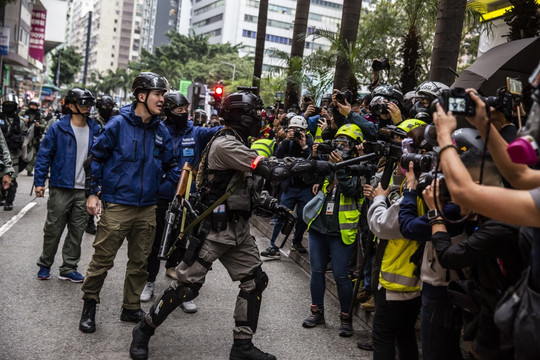The case was brought to the Court by the Hong Kong Journalists Association (HKJA) in 2019, after Hong Kong Chief Executive Carrie Lam denied the need for a complaints system separate to the existing Independent Police Complaints Council (IPCC). Judge Anderson Chow found the existing police complaints department (Capo) could not be regarded as independent, as an unsegregated part of the police force. He said the IPCC was practically independent but lacked power to investigate and overturn Capo’s decisions. The failure of the Police Commissioner to establish an effective system to ensure all police officers carrying out non-covert duties displayed their identification number was also determined to be in violation of Article 3 of the Hong Kong Bill of Rights.
The Bill of Rights guarantees citizens the right to reasonably identify police officers who have committed violence against them, so they are able to enact their own civil or private prosecution. Numerous journalists have been targeted by police during the ongoing protests in Hong Kong, dubbed the Anti-Extradition Law Amendment Bill Movement beginning in March 2019. The protests arose from opposition to the now abandoned Fugitive Offenders Amendment Bill, which would have allowed extraditions to mainland China and Taiwan.
In October 2019, police targeted journalists by spraying blue dye and throwing tear gas at reporters. Many journalists received verbal abuse and intimidation from police officers while covering the protests, with multiple instances of riot police pushing reporters and aiming guns at them. In August 2019, journalists from Now TV and Oriental Daily were surrounded, yelled at and kicked, with protestors destroying equipment and injuring the reporters. In May 2020 several incidents of police pepper spraying, intimidating and disrupting journalists who were attempting to cover the protests were recorded. In particular, two student journalists with Student Depth Media aged 12 and 16 were detained.
HKJA said: “HKJA welcomes the court’s ruling and urges the government and the police to respond to the court’s suggestions as soon as possible. The Commissioner of Police should immediately instruct frontline officers to clearly display their UI number when carrying out non-covert duties. The relevant authorities should also establish an independent investigation mechanism to deal with the public complaints against the police.”
The IFJ said: “The arrests, attacks and disregard for the safety of journalists by police and government authorities during the 2019-2020 protests gravely undermines press freedom and poses significant concerns for the safety of all Hong Kong journalists. The IFJ welcomes the High Court’s verdict and calls for swift justice for those who have committed crimes against journalists and media workers.”

